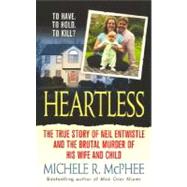
Michele R. McPhee is the author bestselling true crime book, Mob Over Miami. The former award-winning Police Bureau Chief for the New York Daily News, she was the courts and crime reporter for the Boston Herald but is now a full-time radio show host and a columnist for Boston Metro. She hosts a nightly radio show on Boston's Talk Evolution 96.9 FM WTKK, the Michele McPhee Show.
McPhee’s true crime stories have appeared in more than a dozen national magazines including Maxim, Stuff, Cosmopolitan, New York, ESPN the Magazine, Gotham, Manhattan File, and other international publications.
She was the host of two Court TV Mugshot specials and her reporting is also featured in the A&E TV special, Crime Ink. Her journalism has taken her to crime scenes across the country and has made her a commentator on breaking news for CNN, MSNBC, and the Fox News Network.
She lives in Boston, Massachusetts with her dog, Wilbur.
The New copy of this book will include any supplemental materials advertised. Please check the title of the book to determine if it should include any access cards, study guides, lab manuals, CDs, etc.
The Used, Rental and eBook copies of this book are not guaranteed to include any supplemental materials. Typically, only the book itself is included. This is true even if the title states it includes any access cards, study guides, lab manuals, CDs, etc.